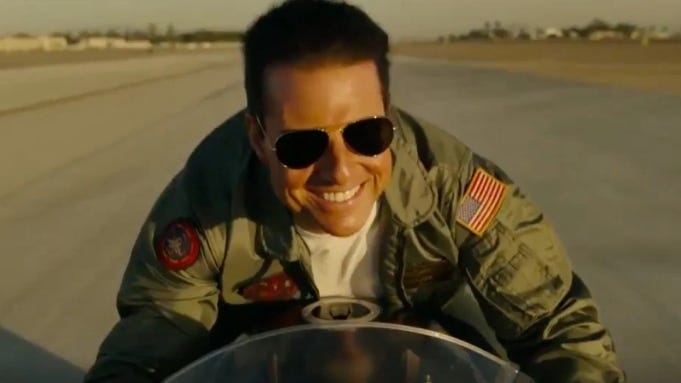Thinking vs Doing
When should you stop pondering a decision and just take it?
This week’s Ruffian is quite long, so if you’re reading the email you might want to click on the web version (see top right, or the header).
In Top Gun: Maverick, Tom Cruise’s character Maverick tells the young pilots he is training, ‘Don’t think, just do.’ The phrase is picked up by his students, and repeated throughout the movie. It becomes a mantra for life.
It is not good advice, taken too literally. Not thinking means failing to reflect on your actions or their consequences. It means you act only on instinct and impulse. That’s almost the definition of being dumb. But it’s not a totally vacuous instruction, either. We are capable of using elaborate logic to reach stupid conclusions or justify stupid premises, a problem I touched on in my piece on stupidity. Faced with a decision, we can get lost inside our own thought process and forget to act. There are mistakes to made in either direction.
Broadly speaking, leaders fall into two categories: over-thinkers and under-thinkers. Think of these as describing two different cognitive styles, or leanings, rather than as value judgements on the leader concerned. There is no perfect type of thinker, just different kinds of error profile. To decide who fits which category, we can ask, were this leader’s mistakes more likely to be the product of under-thinking, or over-thinking?
In the Tory leadership election currently underway, an under-thinker (Truss) is up against an over-thinker (Sunak). Tony Blair and Gordon Brown formed a productive partnership (for a while) because one of them was an under-thinker and one an over-thinker. The U.S. tends to swing between under-thinkers (Reagan, Bush Jr., Trump) and over-thinkers (Clinton, Obama, Biden). Steve Jobs was an under-thinker, Tim Cook is an over-thinker.
Over-thinkers are always asking for more information, and more time, to decide; under-thinkers talk about going with their gut, or doing what they feel is right. The two dispositions represent different attitudes to the future. Over-thinkers are more likely to worry about all the things that could go wrong; under-thinkers to focus on what will work out well. Marriages often yoke together an over-thinker and an under-thinker, the difference becoming most apparent when planning a holiday.
It’s not that anyone should always live by Maverick’s mantra or always reject it. We need over-thinkers and under-thinkers in this world, and each of us should lean into or away our own disposition when appropriate. Circumstances determine whether over-thinking or under-thinking is likely to be more effective; Steve Jobs was the right CEO for Apple in the 2000s, when it depended on radical innovation to grow; Tim Cook was the right leader for the 2010s, when the task was managing a complex global behemoth.
But now I want to get a bit more precise about what we mean by overthinking, and ask if there is any such thing, in the context of decision-making. We generally say thinking is good and celebrate those who are good at it. So at which point does thinking about a decision become a net negative? Why does it become a negative? Why is thinking ever bad at all?
A little bit of theory is helpful here. I recently came across a discussion between the cognitive scientists John Vervaeke and Anna Riedl about the study of rationality, which combines psychology with economics, biology, AI and philosophy. I can’t do justice to the depth of thinking in Vervaeke and Riedl’s conversation, but I’ll give you a flavour of it, because it helped me reflect on the questions I pose above.
After the jump:
When over-thinking decisions is dangerous, and what cognitive science tells us about the right time to apply Maverick’s mantra.
How will Liz Truss fare as Prime Minister? (Building on the same theme)
A beautiful example of a musician following Maverick’s rule, because she had to.
Any Other Business: the usual selection of juicy links.




